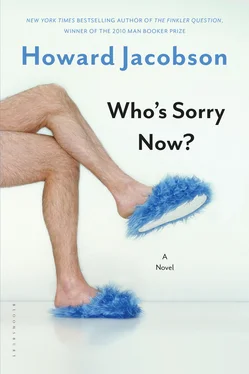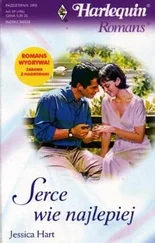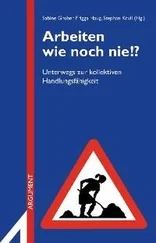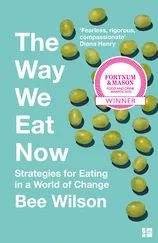Kreitman’s eventual turning of his own back on Francis Place, as good as abandoning all his researches into the great puritanical tradition of English radicalism, forsaking a university career and forswearing radicalism itself in favour, once and for all, of purses, was not to be ascribed, in Kreitman’s own view, to genetic or moral backsliding, but to the times. He had meant to be high-minded and disinterested at a historical moment unpropitious for any motive except advantageous low-minded selfishness. He remembered the hour everything he valued flew out of the window, the hour hobbledehoy Thatcherism blew its first triumphalist fanfaronade, sending disinterestedness orphaned into the night, where for years it could be heard shivering and scratching at windowpanes, like the ghost of a relation no one dared claim. It didn’t feel like cynicism, his abandonment of his projects, his reversion to family form — cynicism never does. Nor did it feel like defeatism. What it felt like was getting pissed. Just giving up on being sober for a night. There is no such thing as society, proclaimed Mrs Thatcher — always looking suspiciously pissed herself, sozzled more the word, her patent heels never less than precarious, like Minnie Mouse’s — and Marvin Kreitman, along with most other people, was mightily relieved to hear it. Three cheers for ourselves! It was like the lifting of an oppressive burden. Society, society! Was there to be no end to it? Society, the societal, the socio, the sociogenic, the sociographic, the sociosocio … Give us a break already! And she did. For even the most industrious won’t say no to a holiday when it’s the boss’s suggestion. Drinks all round on Mrs T! That was what it felt like to Kreitman, anyway — time off; not a greedy going to work at hard-heartedness, but a needful holiday from soft; in his particular case, a needful holiday from squishy. Though as it turned out, not even G&T and don’t spare the ice Thatcherism could prevent the tears from rolling down his cheeks whenever he had to remove himself, if only for a weekend, from the company of a woman he loved.
He remained a romantic, then, through all the every-man-his-own-island (every man own his own island) years, opening one shop after another, branching out from small leather to large luggage, hiring and firing and fucking in between? Oh, yes. Romantic, sentimental and, as night follows day — for where else can sentimentality lead? — perfidious. As loose as careless talk.
Leave the guy alone. His head banged and falling in love incontinently gave him some relief. He had climbed back into his father’s shadow scarcely before he’d left it — easy to do: he knew where all the warehouses were — and he couldn’t blame it all on Mrs Thatcher. He had married young and fathered two children, neither of which was her fault. And he had expensive habits over and above fathering, which weren’t her fault either. Not all her fault, though of course had she paid academics better …
False reasoning, and he knew it. All the money in the world wouldn’t have kept Kreitman in the academy. He felt wrong there, a traitor to something in himself. Maybe even a traitor to his father, to what his father did and should have done better. He felt ashamed, catching his reflection in leaded windows, striding through quadrangles with his books under his arm and students clinging to his gown, as though teaching even at that level still smacked of the servility of domestic service, like being a governess or the tutor to a rich man’s children. And even if it didn’t, what pride could a mature man take in being King of the Kids? Stay doing that till he was fifty and he’d have grown that parchment skin, neither old nor young, that mask of squandered sempiternity, which is the reward for passing all your days in the company of eighteen-year-olds. Yet those of his university friends who went into commerce fared no better in his estimation either — slaves to some corporation, dirtying themselves not with notes but with the principle underlying notes, which was even worse. Whichever way you committed yourself you were demeaned; so better not to commit at all, to step outside and have a leg in both camps, and in that way to be fully recognisable to neither, a thorn in the flesh of each (as if either cared!) and a continuing puzzle to yourself.
Besides, in abandoning Francis Place, Kreitman wasn’t entirely abandoning Francis Place’s example. Place himself had opened a shop, improving his mind and doing much to improve the country’s on the back of a flourishing tailoring business. ‘I had three things continually in my recollection,’ Place wrote in an autobiography too unwieldy ever to be published in full. ‘The first, and by far the most important, was to get money, and yet to avoid entertaining a mercenary, money-getting spirit; to get money as a means to an end, and not for its own sake.’ And the other two things continually in his recollection? Kreitman knew them off by heart. Not to allow the ‘contumelious treatment’ he had received in his breeches-making days to make him a ‘sneaking wretch’ to those above him or a ‘tyrant’ to those below; and to be forever on guard against presumption and arrogance.
As a matter of more than passing interest to Kreitman, Francis Place went on, in the course of a long public life, to campaign for birth control and free love. Though not, of course, in any sensual spirit. And his second wife was an actress, named Mrs Chatterley. Though not, of course, Connie Chatterley.
Kreitman didn’t know why the chill wind of self-congratulatory integrity that blew through nineteenth-century English radicalism, utilitarianism, Moral Chartism and the like, appealed to him as it did. His hatred of his father explained it partly. He revered everything his father wasn’t. Principled Englishness, above all. He didn’t know where his father was from. It was never discussed. Kreitman assumed Hungary, but it could have been somewhere equally horrible. Romania. Bulgaria. Albania. The Balkans. One of the thin-skinned, contumelious countries. Not England, though, of that he could be sure. And for his own part, perhaps because of his mother’s example, he felt at home with long-winded moralists, loved the rapaciousness of their restraint. Give him a page of sententious prose, the gluttonous elaboration of the principles of self-denial, that tireless puritanism of the intellect which mowed down every frivolity in its path, and Kreitman was a happy man. Throw in a sentimental fuck with the mother of one of his lady-friends and he’d have called himself delirious.
He also liked selling purses. Proving it could be done, partly; proving it could be done with a good heart. But also he enjoyed testing his taste against the market. Seeing whether, in purses if in nothing else, he could harmonise himself with the spirit of the age. And he loved playing shop. The money part was necessary but not interesting to him. For accumulation for its own sake he had even less enthusiasm than Francis Place had. What interested him was what he already employed staff for — unpacking cartons, stacking shelves and making sales. Like Christmas, the physical excitement of taking receipt of stock. Like all his Christmases and all his birthdays rolled into one, counting the boxes, getting down on his knees and ripping open the cardboard, cutting his hands on the staples, breaking his fingernails in his impatience to snap the tape and see what was inside. Yes, yes, he knew already — obviously he did, since in those early days he was the one who did all the buying — but it pleased him to take custody of the new lines, to recall and reaffirm his original enthusiasm, expressed at some trade fair months before, and now to touch and smell it. Intoxicating, the cheap Moroccan wallets, squashed and flattened in their elasticated dozens, which he eased apart like squeeze-boxes, releasing their scent of oxhide, of urine, of all the dyes and spices of the kasbah. And more voluptuous still, the squeaky-tanned Italian handbags in smoky colours — brandy, Armagnac, blood-spot cognac — individually wrapped in branded, rusding paper, sometimes boxed, sometimes in linen shoebags (bags in which to keep your bags), ornamental as the Florentine bridge on which they’d been stitched, as still as works of art, answering as they never would again to the philosophical idea of handbag — the Platonic bag to which all other bags aspired — prior to the gross contingencies of use.
Читать дальше












